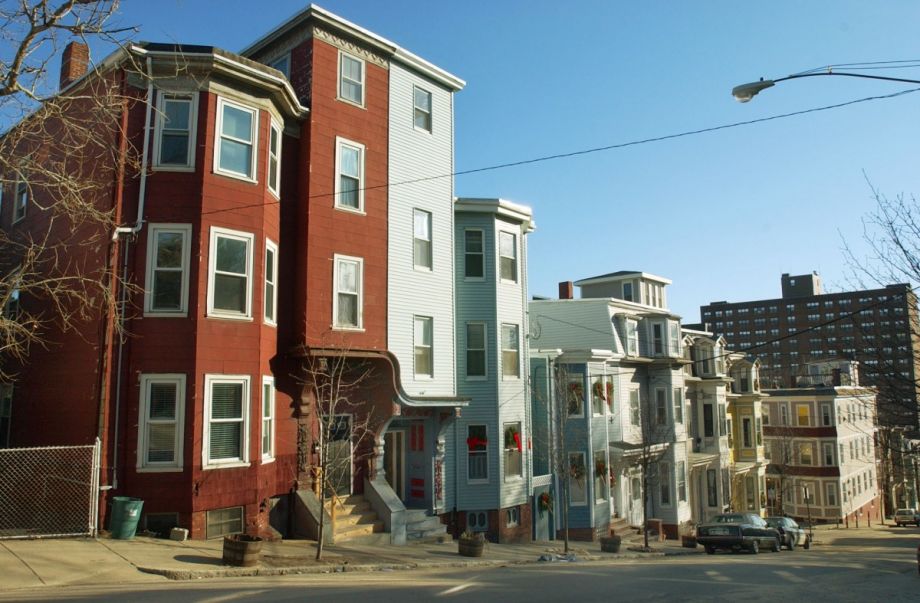When it comes to housing, Boston often finds itself unhappily among the top ranks on issues from astronomical rents to astounding racial disparities in wealth, which often is closely tied to home ownership.
Housing affordability issues extend beyond Boston proper as well, threatening the state’s ability to attract and keep workers. Massachusetts Governor Charlie Baker recently cited high home prices as one of the most serious impediments to the state’s long-term economic growth.
Still, there’s no shortage of people yearning to enter the market. And for some, mortgage payments would be manageable — and might even be lower than their current rent. But when facing high rents along with child care and car expenses and student loan debt, saving for a down payment can become a never-ending treadmill.
Now, a new down payment assistance program from MassHousing aims to administer some relief, allowing qualified low-to-middle-income buyers to purchase homes with no down payment at all. Instead of requiring its usual three percent down, the agency will now offer to cover that three percent with a second loan (up to $12,000), repayable at one percent interest over 15 years.
The idea of zero-down-payment mortgages may spark bad memories of the foreclosure crisis of 2008-2009, but MassHousing Executive Director Chrystal Kornegay says her agency’s underwriting safeguards, homebuyer education and fixed-interest loans make this assistance a far cry from the predatory practices that lured so many buyers into agreements they couldn’t possibly sustain.
“This program intends to reach folks who are credit-worthy, but don’t have the savings to get into the marketplace,” says Kornegay, the first woman and the first person of color to lead the agency. “I’m very happy that people remember those [foreclosure] issues, but we’re about not just affordable mortgages, [we’re about] mortgages sustainable over the long haul. We want to ensure that home ownership remains accessible to working families.”
MassHousing was formed in 1966 as a nonprofit, quasi-public agency that finances construction and preservation of affordable housing and provides affordable mortgages for low- and moderate-income homebuyers. It builds capital through its loan portfolio, reinvesting the ‘profits’ into programs to make homeownership accessible to more residents. The agency is not tax-funded. The new down payment assistance program, Kornegay says, will be sustained by MassHousing’s existing portfolio.
With no down payment, new homeowners will have to wait longer to build equity. But on the long road to building wealth, buyers can still savor the satisfaction of ownership and the stability of fixed housing payments.
Tom Callahan of Mass Affordable Housing Alliance says his organization typically supports low down payments as opposed to zero, but sees promise in this program at this time.
“[A down payment] helps people demonstrate that they can handle financial hardship, like a blip in their incomes or a tenant moving out,” Callahan says. “But that being said, what’s happened to housing prices in Boston, and how high rents have become, it’s really difficult for people to save right now. We think this program will help some people enter the market.”
The down payment assistance will be available to first-time homebuyers with household incomes at or below the area median purchasing a single-family home or condo. Buyers will need to meet the agency’s normal underwriting requirements, including minimum credit scores and debt-to-income ratios.
With the upper limit for the new down payment assistance loans at $12,000, the practical upper limit of home prices for the program will be about $400,000. Meanwhile, area median income varies widely across Massachusetts, as do housing prices. In the Boston area, the area median income (and thus the upper income limit to qualify for this program) is $103,400, yet Boston home prices — with the median at $569,000, according to Zillow — mean few options within reach for those in the program who want to buy in Boston. In other communities, where there’s more overlap of moderate incomes and lower-priced housing stock, the math may work out better: for instance, in Worcester County, area median income is $85,700, while Worcester’s median home price is $227,000.
Jacqueline Cooper, founder and principal of Financial Education Services, says that in Boston, supply of affordable homes is a continual problem. In a recent homebuyer education class, instructors searched for Boston properties under $400,000. Of the 28 that popped up, she says, “Eleven were parking spaces or developable land. Another 15 were big enough for one or two people, but not a family.”
At City Life/Vida Urbana, a 44-year old tenants rights and anti-displacement organization in Boston, Organizing Coordinator Steve Meacham is cautiously optimistic.
“I think it’s basically a good program that will allow some people to buy who wouldn’t otherwise be able to,” says Meacham via email. “[But] most of our people can’t afford the monthly payments for a $400,000 property.”
Meacham suggests an even larger subsidy, as well as some sort of limited equity arrangement, such as a cooperative or a community land trust, which would limit the wealth-building aspect of homeownership in exchange for preserving affordability for subsequent owners of the same home.
A number of Massachusetts municipalities have their own down payment assistance programs, but not all do, says Ginny Gilmartin, manager of home ownership services at Boston’s Urban Edge, which develops affordable rental and home ownership units in Boston’s working class communities of color. She sees potential for MassHousing’s zero down payment loans to fill the gap for buyers in towns and cities with moderate-priced housing stock, but no down payment assistance.
“A lot of Boston buyers look to Randolph,” Gilmartin says, “but there’s no down payment assistance available there. So [this new program] will be great for that.” Randolph, about 15 miles south of Boston, has a more attainable median home price of $338,000, while sharing Boston’s area median income of $103,400, and it’s also on a commuter rail line into Boston.
Gilmartin also notes that taking the low-interest loan to cover the down payment could help people preserve other important financial cushions.
“We see people taking from their retirement savings for a deposit, and that’s not something we like to see,” she says. “Though it’s available, if they can leave the money there and secure their future, that’s obviously better.”
Rachel Heller, CEO of Citizens Housing and Planning Association, expresses confidence that for buyers who make it through the qualification process, the zero-down-payment program will be valuable.
“This is a pretty great product,” she says. “It increases purchasing power for people struggling with high rents. A tremendous number of people are seeking this help.”
Citizens Housing and Planning Association works with 48 housing counseling agencies that have provided education to 20,000 prospective homebuyers in the past year, Heller said, demonstrating a widespread hunger for home ownership.
“Many of these 20,000 households will be the first generation of their families to own homes. That’s tremendous for wealth-building,” she says. “Home ownership is not for everybody, but for those who can do it, it means a tremendous amount for their futures and the futures of their families.”
Sandra Larson is a Boston-based freelance writer covering urban issues and policy. Her work has also appeared in The New York Times, Guardian Cities and the Bay State Banner. See her work at sandralarsononline.com.
Follow Sandra .(JavaScript must be enabled to view this email address)
















